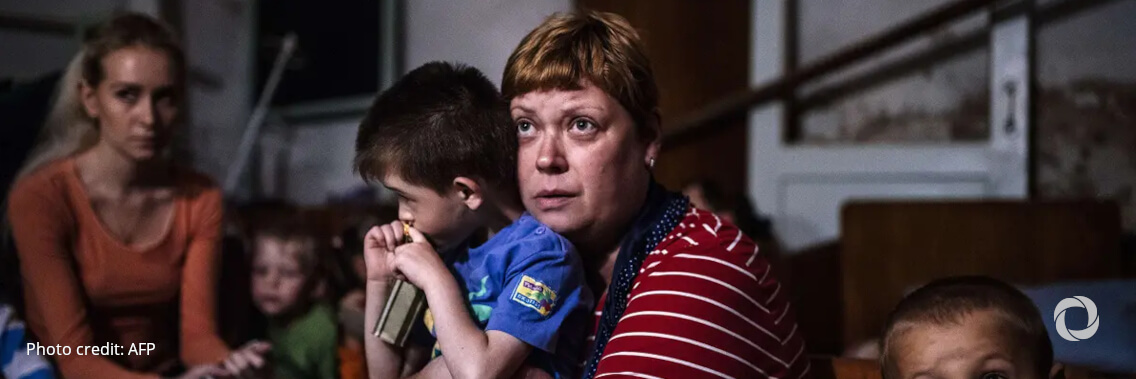With tensions rising around the situation in Ukraine, the Danish Refugee Council (DRC) warns that a further escalation of the crisis will deteriorate an already dire situation for the Ukrainian population, suffering from eight years of conflict. DRC, therefore, calls for urgent de-escalation and resolution of the situation.
The conflict in Ukraine has been ongoing since spring 2014, which saw the self-proclamation of two autonomous republics in the eastern Donbas region. The conflict has led to the internal displacement of more than 730,000 people, while 1 million people have fled Ukraine entirely. It is estimated that 5.2 million people are affected by the conflict and 2.9 million people are in need of some kind of humanitarian assistance.
“We fear that a further escalation of the crisis will have dire consequences for the civilian population, who have already been affected by the dual impact of nearly a decade of conflict as well as the COVID-19 pandemic. Humanitarian needs are already great with almost three million men, women, and children in need and relying on life-saving humanitarian assistance. Any escalation of the conflict would exacerbate the needs substantially”, says Charlotte Slate, Secretary-General of the Danish Refugee Council (DRC).
DRC re-opened its operations in Ukraine in November 2014 to respond to the growing humanitarian needs in the country. Despite numerous ceasefire agreements, civilians are regularly exposed to active hostilities. Civilians living along the contact line continue to face damaged homes and civilian infrastructure, disrupted access to critical services, and risks from landmines and explosives.
“As DRC we – along with the rest of the humanitarian community – are committed to stay and deliver in Ukraine. Naturally, we monitor the situation closely and have ensured continuity plans in case of a potential escalation. We will continue to focus on saving lives, ensuring access to basic services, strengthening the protection of those affected by the conflict, and developing durable solutions for them. The severity of needs remains critical, particularly in the area close to the contact line”, says Charlotte Slente.
To ensure the safety and protection of the civilian population in Ukraine, DRC calls on world leaders to ensure that the crisis does not escalate and get out of hand.
“We call for the international community to work on all channels to ensure a de-escalation of the situation and long-term solution while also ensuring that critical infrastructure such as hospitals, education facilities, and water installations, must be protected in line with international humanitarian law. Affected populations should have access to fundamental services and the humanitarian community must be allowed to provide humanitarian support”, Charlotte Slente ends.
The Danish Refugee Council has been providing emergency response, recovery support, and durable solutions to affected populations in Ukraine since the outbreak of the conflict in 2014. As of December 2021, it has assisted over 150,000 people of concern within its conflict-response projects.

